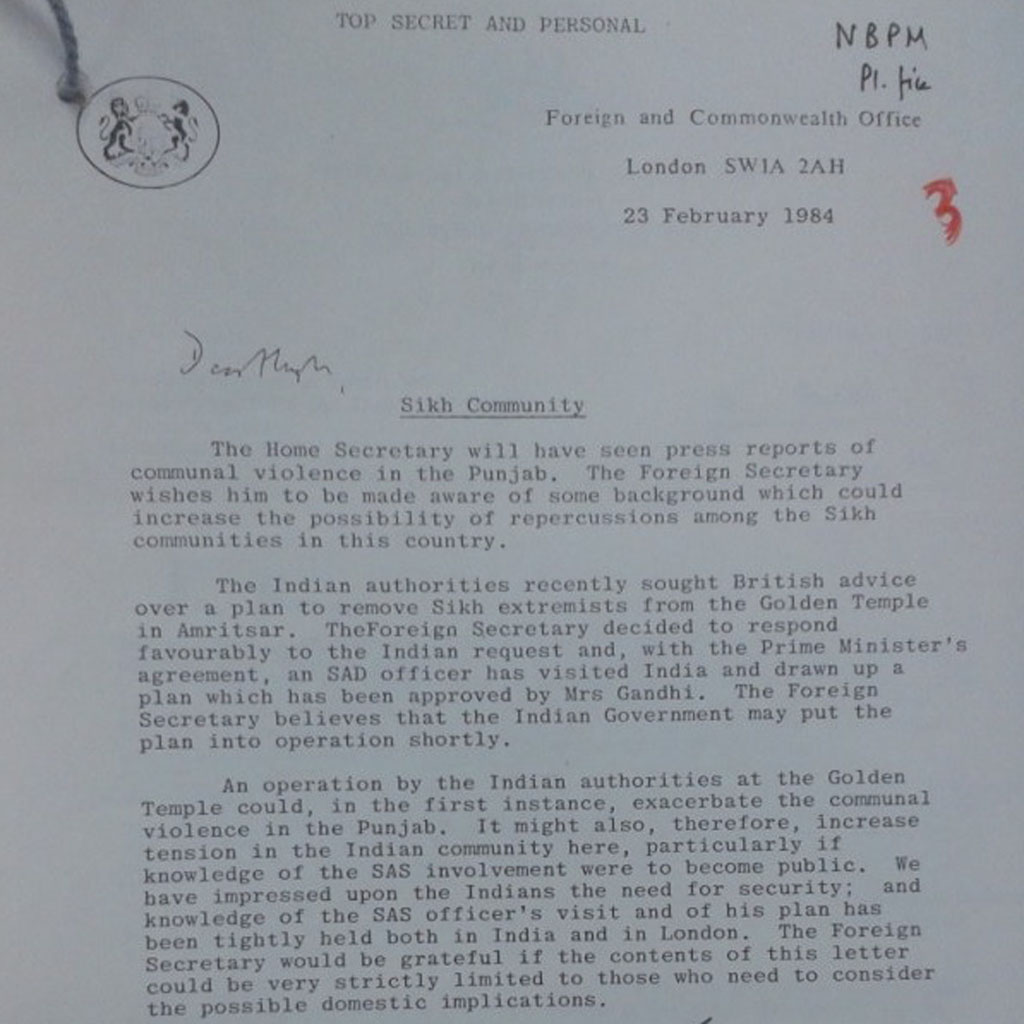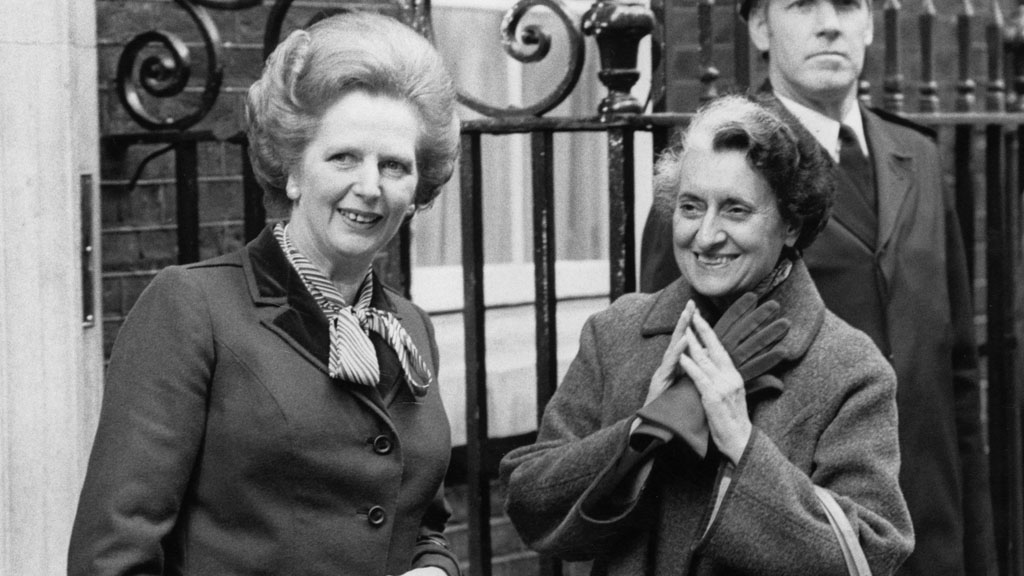Did Thatcher government help plan attack on Sikh temple?
David Cameron orders a review after papers show that Margaret Thatcher sent an SAS officer to help the Indian army carry out the notorious storming of the Golden Temple in Amritsar.
Many civilians died when the then Indian prime minister, Indira Gandhi, ordered troops into the temple in Amritsar, Punjab, in 1984 to remove the Sikh militant leader Jarnail Singh Bhindranwale (left) and his armed separatist supporters.
The incident is one of the most controversial in recent Indian history, but allegations of British involvement have only come to light with the publication of government papers.
The documents, publicised by Labour MP Tom Watson, suggest Margaret Thatcher responded positively to an Indian government request for advice on planning the 1984 attack and sent an officer from the SAS special to help draw up a plan.
Mr Cameron has asked Cabinet Secretary Sir Jeremy Heywood, Britain’s most senior civil servant, to look into the case and report back to him.

Top secret documents
The papers, released under the 30-year rule and published on the Stop Deportations blog, appear to indicate that Mrs Thatcher was aware of the involvement of an SAS officer in drawing up a plan – although it is not clear whether the Indian army followed British advice when it launched the attack.
The request for British advice is disclosed in a letter, marked “top secret and personal” and dated 23 February 1984, from the Foreign Office to the Home Office.
The letter said: “The Indian authorities recently sought British advice over a plan to remove Sikh extremists from the Golden Temple in Amritsar.
“The Foreign Secretary decided to respond favourably to the Indian request and, with the Prime Minister’s agreement, an (SAS) officer has visited India and drawn up a plan which has been approved by Mrs Gandhi.
“The Foreign Secretary believes that the Indian Government may put the plan into operation shortly.”
The letter continued: “An operation by the Indian authorities at the Golden Temple could, in the first instance, exacerbate the communal violence in the Punjab.
“It might also, therefore increase tension in the Indian community here, particularly if knowledge of the SAS involvement were to become public.
“We have impressed upon the Indians the need for security; and knowledge of the SAS officer’s visit and of his plan has been tightly held both in India and in London.”

Another letter apparently makes it clear that Mrs Thatcher (above, with Indira Gandhi) had been briefed personally about the involvement of British special forces.
A government spokesman said: “These events led to a tragic loss of life and we understand the very legitimate concerns that these papers will raise.
“The prime minister has asked the cabinet secretary to look into this case urgently and establish the facts. The PM and the foreign secretary were unaware of these papers prior to publication.
“Any requests today for advice from foreign governments are always evaluated carefully with full ministerial oversight and appropriate legal advice.”

Bloody legacy
Formally known as the Harmandir Sahib, the Golden Temple is the holiest shrine in the Sikh religion. Many Sikhs regarded the decision to send Indian army troops into the complex as an act of desecration.
The death toll remains disputed, with Indian authorities putting it in the hundreds and Sikh groups in the thousands.
Gandhi was assassinated by her Sikh bodyguards four months later in revenge for the bloody military operation, known as Blue Star. Thousands died in anti-Sikh riots that followed her murder.
In India, there were calls for New Delhi to hold its own inquiry into Britain’s possible role in the attack.
Mohammed Adeeb, an independent member of India’s upper house of parliament, said: “This is very dangerous news. If there is an iota of truth in it, then we should look deeper into it across party lines.
“If outside help has been taken to kill and to commit atrocities on our own people, then it is extremely shameful.”
The raid still casts a shadow on India’s ruling Congress party, which faces an uphill struggle to be re-elected in this year’s national polls.
Congress is widely expected to announce Rahul Gandhi, grandson of Indira Gandhi, as its candidate for prime minister this week.
The nationalist opposition Bharatiya Janata Party (BJP), which some opinion polls say is the favourite to form the next government, criticised Congress over the incident.
Arun Jaitley, the party’s leader in the upper house, wrote that Indira Gandhi’s government “wanted to invade the sacred precincts of the Golden Temple no matter even if it hurt the national interest and certainly the interests of the Sikhs”.